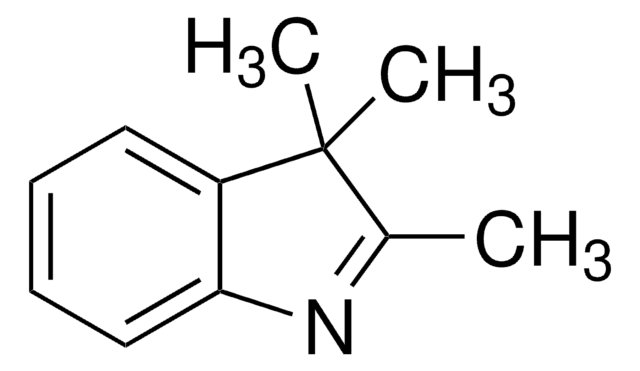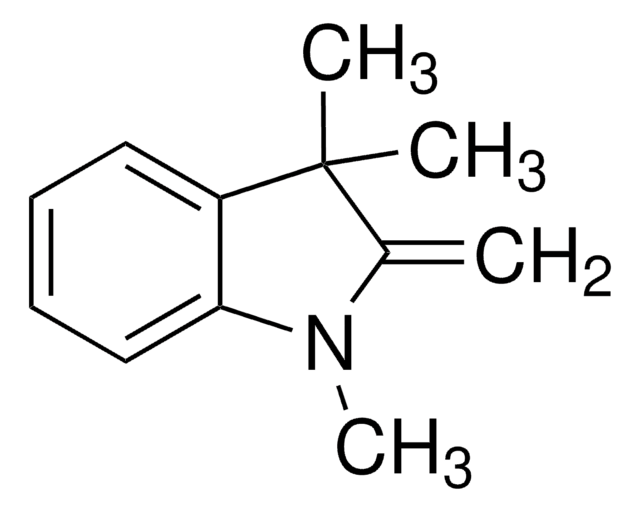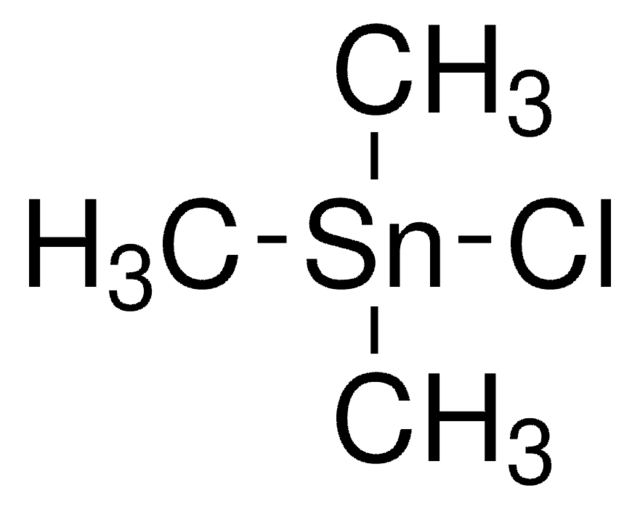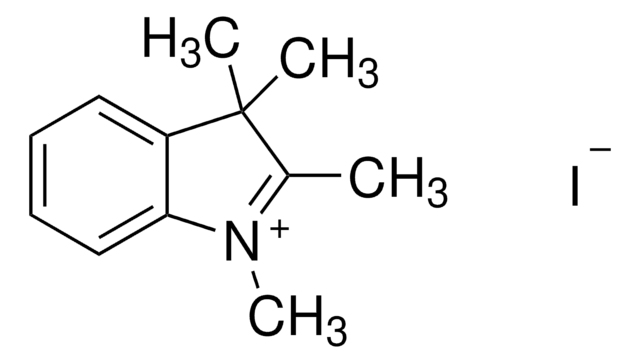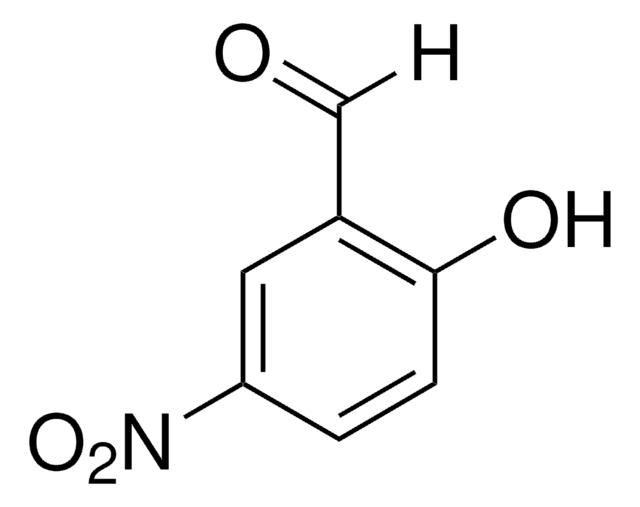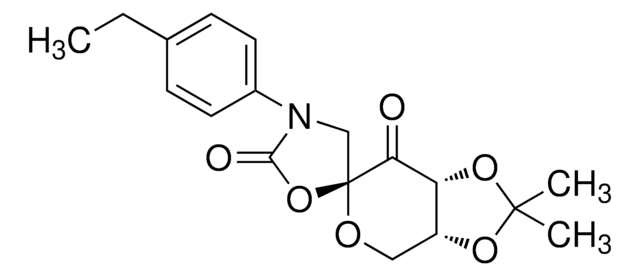273619
1′,3′-Dihydro-1′,3′,3′-trimethyl-6-nitrospiro[2H-1-benzopyran-2,2′-(2H)-indole]
98%
Sinónimos:
1′,3′,3′-trimethyl-6-nitrospiro[chromene-2,2′-indole], 1,3,3-Trimethylindolino-6′-nitrobenzopyrylospiran; 1′,3′,3′-Trimethyl-6-nitrospiro[chromene-2,2′-indoline]
About This Item
Productos recomendados
Quality Level
assay
98%
form
solid
mp
179-180 °C (lit.)
λmax
242 nm in ethanol
SMILES string
CN1c2ccccc2C(C)(C)C13Oc4ccc(cc4C=C3)[N+]([O-])=O
InChI
1S/C19H18N2O3/c1-18(2)15-6-4-5-7-16(15)20(3)19(18)11-10-13-12-14(21(22)23)8-9-17(13)24-19/h4-12H,1-3H3
InChI key
PSXPTGAEJZYNFI-UHFFFAOYSA-N
General description
Application
signalword
Warning
hcodes
Hazard Classifications
Eye Irrit. 2 - Skin Irrit. 2 - STOT SE 3
target_organs
Respiratory system
Storage Class
11 - Combustible Solids
wgk_germany
WGK 3
flash_point_f
Not applicable
flash_point_c
Not applicable
ppe
dust mask type N95 (US), Eyeshields, Gloves
Elija entre una de las versiones más recientes:
¿Ya tiene este producto?
Encuentre la documentación para los productos que ha comprado recientemente en la Biblioteca de documentos.
Los clientes también vieron
Artículos
Graphene has emerged as the new wonder material. Being only one atom thick and composed of carbon atoms arranged in a hexagonal honeycomb lattice structure, the interest in this material has exploded exponentially since 2004 when it was first isolated and identified using a very simple method.
Nuestro equipo de científicos tiene experiencia en todas las áreas de investigación: Ciencias de la vida, Ciencia de los materiales, Síntesis química, Cromatografía, Analítica y muchas otras.
Póngase en contacto con el Servicio técnico![1,3-Dihydro-1,3,3-trimethylspiro[2H-indole-2,3′-[3H]naphth[2,1-b][1,4]oxazine] ≥98.0% (HPLC)](/deepweb/assets/sigmaaldrich/product/structures/328/450/b7868d16-ffb3-47c0-8c9b-81a9630a963a/640/b7868d16-ffb3-47c0-8c9b-81a9630a963a.png)

